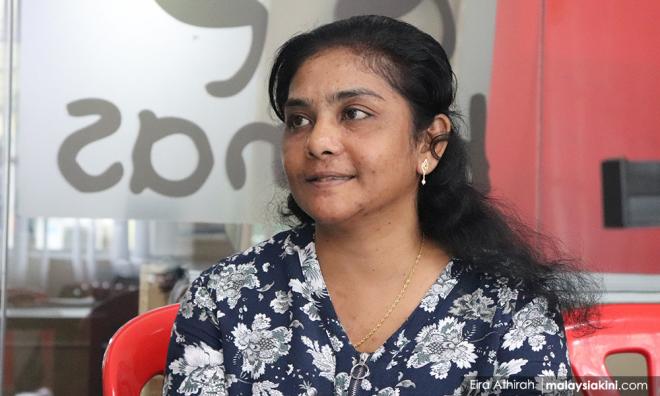
MALAYSIANSKINI | With the outbreak of the Covid-19 pandemic, the challenges facing healthcare personnel are slowly falling under the media spotlight. There is, however, another group of people in the government hospitals who stay in the shadows, risking their lives just to ensure that the patients and medical staff are always in a clean and sterile environment while fighting against the virus.
These unsung heroes are hospital cleaners who perform a crucial role but have very few rights and benefits and whether one is a new worker or a 20-year veteran, the salaries are the same - the minimum wage of RM1,100. The remaining allowances and benefits are up to their respective contractors.
Rita Santaran (above) took up the fight for the rights of such workers and lost her job in the midst of a takeover, although the new contractor, UEM Edgenta, told Malaysiakini that Rita was indeed offered the chance to continue her employment.
A former chairperson of a hospital cleaners' union in Perak and a single mother with four children, Rita raised a whole family with a monthly wage of around RM1,000 (after deductions).
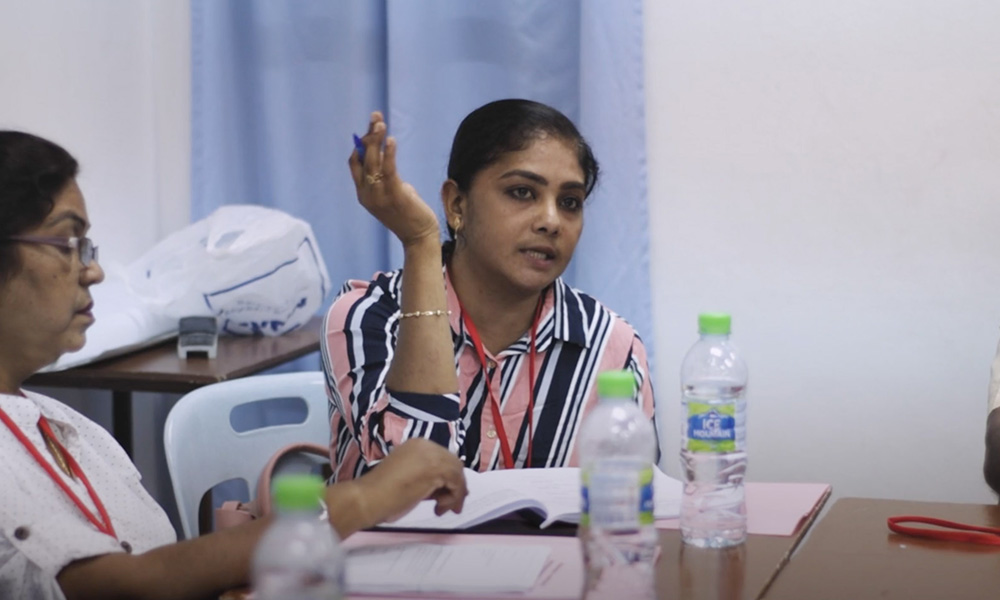
She had started working in a government hospital in November 2013 and at that time, her youngest son was three years old, while her eldest child was 12 years old.
She had worked in a departmental store, a factory and so on. But after giving birth to her children, Rita decided to work in a hospital, which is much closer to her house than the factories.
“It is more convenient for me if I want to send my children to school, or go back home to see them,” she told Malaysiakini.
In the early years of nationhood, cleaners in government hospitals were part of the civil service. This was until then prime minister Dr Mahathir Mohamad launched the national privatisation policy in 1983.
At that time, the government decided to transfer the "non-professional" services under public agencies to the private contractors - this included cleaning and maintenance works.
As a contract worker over the past seven years, Rita has gone through three different contractors and only one of them raised her salary - by RM50 - in 2015.
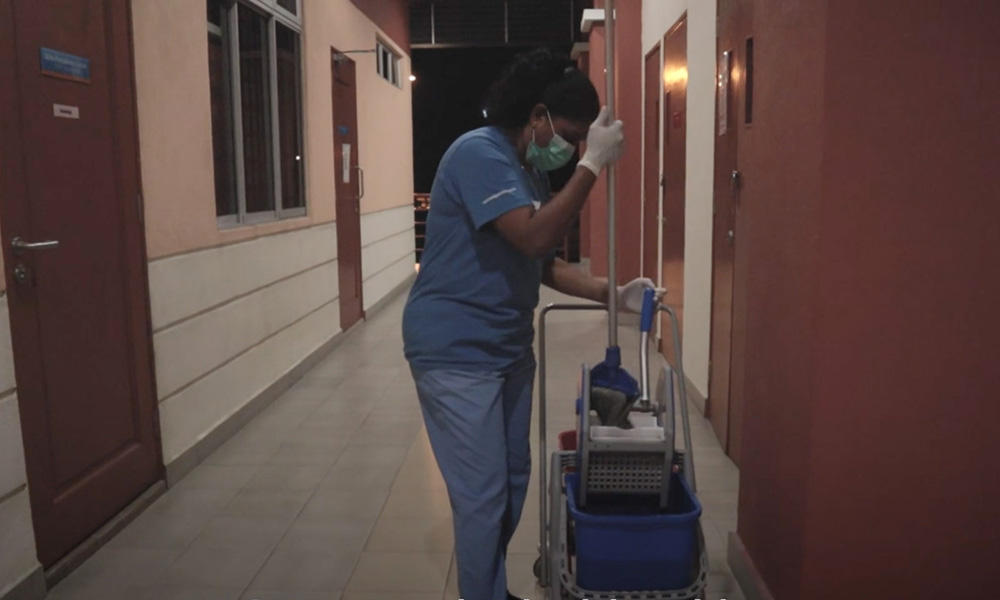
Whenever contractors or subcontractors change, the workers in a hospital will be absorbed as "new workers" despite some of them having worked in the same hospitals for 10 to 20 years.
This means that their accumulated annual leave, bonus or medical allowances will not be carried forward.
“If I want to buy a house, my payslip is less acceptable than those of permanent workers because the bank will worry that you might lose your job and be unable to pay the loan after two or three years.
“I had asked the boss in a meeting, 'Why are we contract workers?' And he said the government launched this programme to give the opportunities for contractors to be maju.
“So, my question is, if all the contractors want to maju, how about us, the workers?" Rita said.
Hospital cleaning as a profession
Rita spends her mornings on housekeeping as well as sending her children to school.
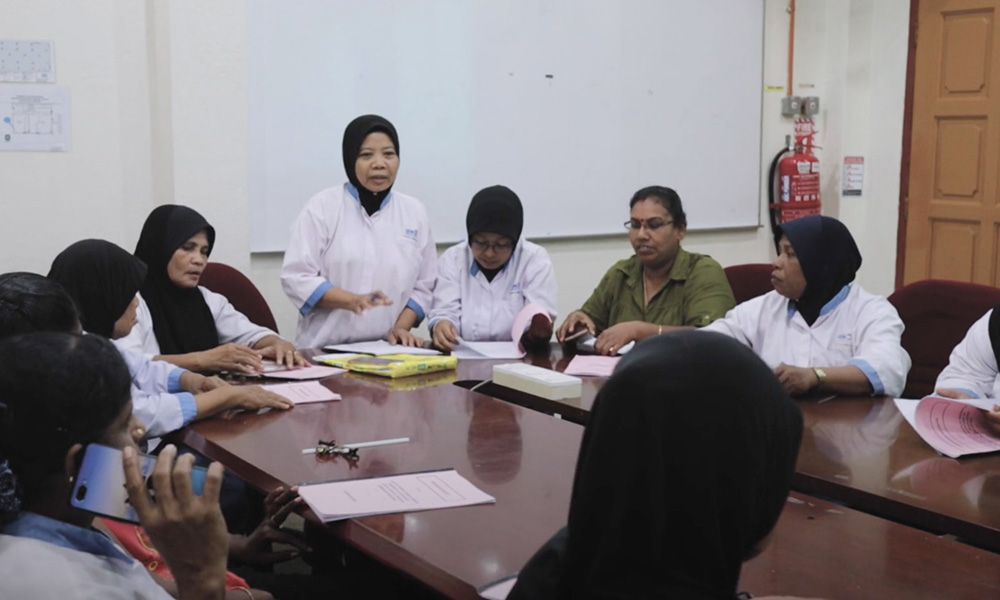
After that, she goes to the hospital and shuttles between the various departments. The shifts are 3pm to 11pm or 11pm to 7am, with only one and a half-days off a week.
During her one-hour lunch break, she still has to be on call for contingency while having lunch. If any patient vomits, haemorrhages or bed-wets, the workers have to go to the ward and clean it up quickly.
“If they cannot find us, they will complain to our office and we will get a warning letter,” Rita said.
Cleaning in hospitals is different from cleaning in banks, schools or other office spaces.
According to Rita, there are strict procedures to be followed in a cleaning task, including certain detergents or powders to be applied first and certain kinds of mops to be used next.
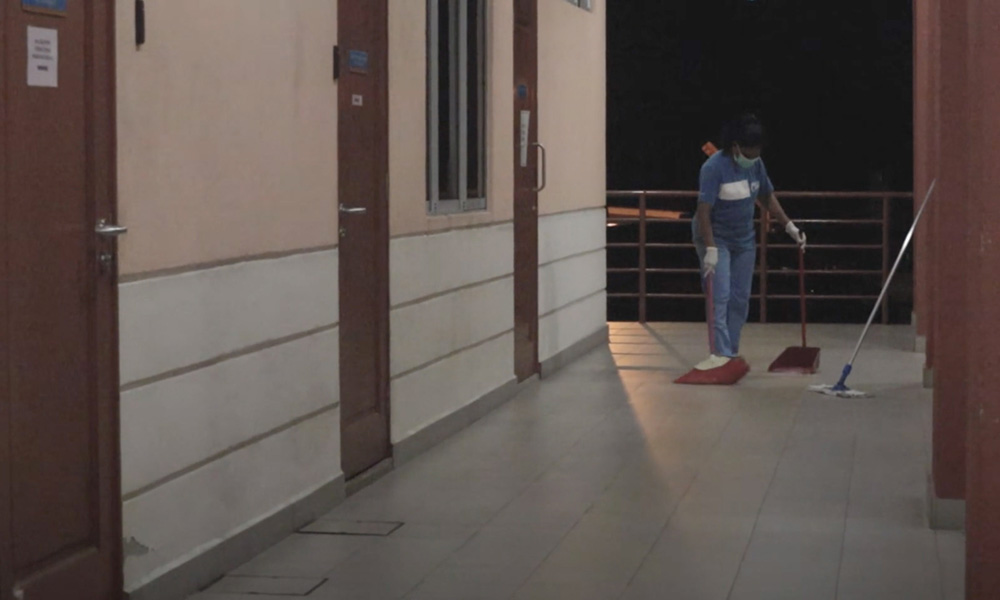
Although employers provide the cleaners with personal protective equipment, such as gloves and masks, sometimes this is not enough for them.
Working in a hospital means the workers are at a high risk of getting infected by unknown diseases.
“We won't know what disease the patient has contracted. Maybe they have infectious diseases and the waste we clean up, the urine, the vomit, all of these could spread the virus."
Two years ago, Rita and several colleagues contracted shingles (herpes zoster) after cleaning up the blood of a dialysis patient.
“That uncle bled a lot, the chair was full of his blood, I had to clean it. I was also not very healthy at the time, I had a cough. So I got infected very soon after.”
“It spread to my back and my hands until I couldn't lift one of my hands.”
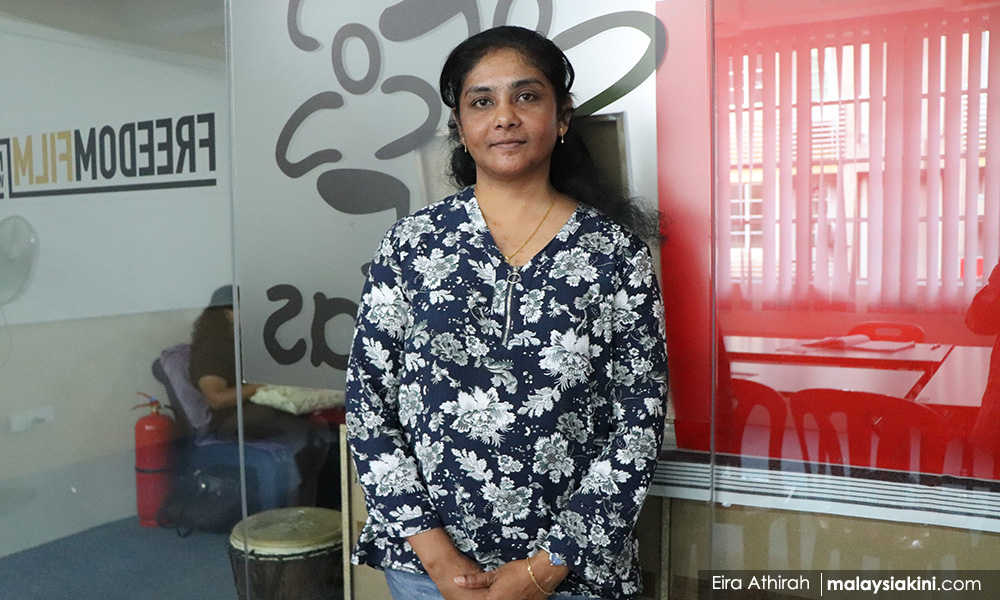
It took Rita a month to recover from the illness and until today, she still has skin problems.
Although the company offered a medical allowance of RM200 per year, Rita had to pay the RM1 consultation fees on her own at the hospital that she worked for.
She also noted that the medical allowance was too little for cleaners, considering their constant exposure to disease.
Bullied by employer after husband’s death
Four years ago, Rita’s husband passed away suddenly, after a month of fever, leaving her to support the children.
The grief, coupled with the stress of making a living, affected Rita’s working performance and the supervisor changed her workplace to a bigger building.
“I worked in the hospital's Emergency Department before, with stable working times. I was moved to the students' hostel. A very big building with more workload and almost no one to interact with. That made my trauma more serious.”
After Rita protested, the supervisor agreed to reassign her - on condition that she give up stable working hours for shift work.
"He knew that I had just become a single mother, and if I worked the night shift, there would be no one to take care of my children. I had no choice but to accept it.”
After facing unreasonable treatment for many years, Rita realised how the contract system exploits workers and she became braver about confronting her bosses to defend the rights of the workers.
“During the meeting they will scold us and talk to us as if we are very low, telling us to go and die. I told them that they, being the leaders, shouldn’t talk like this. It’s unfair.
“My colleagues thought I’m fierce, but actually I’m not. It’s already 2020, we have to improve. If you always stay quiet, you’ll never get your rights.”
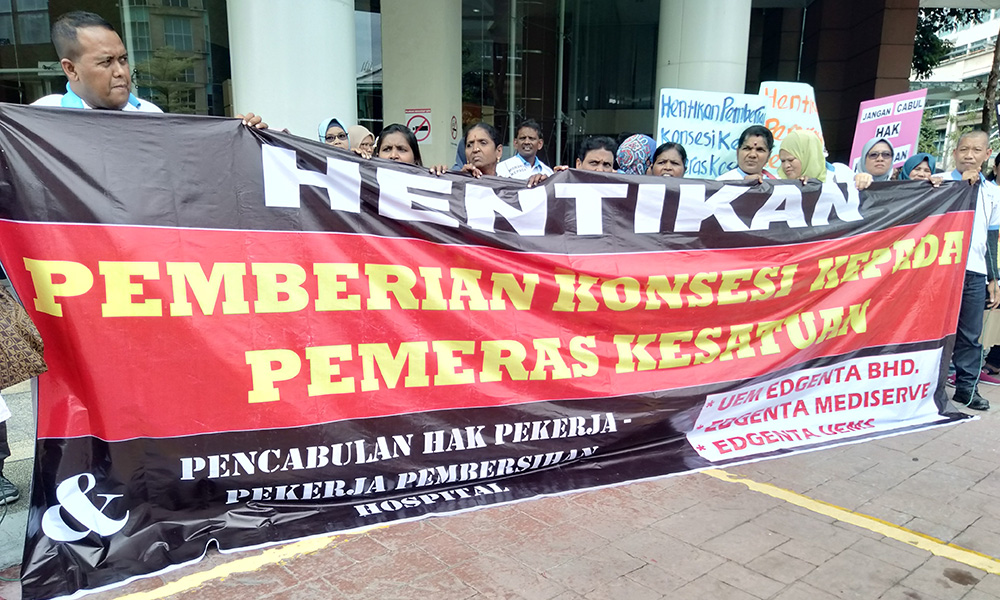
Joining the union was the starting point for Rita to fight the system, the employers and the authorities for the rights of these hospital workers.
In 2016, M Sarasvathy, the then deputy president of Party Sosialis Malaysia (PSM), went to meet the cleaners at the government hospital where Rita worked, to explain the plan of forming a workers’ union.
Rita and several colleagues decided to join the union, which had not been officially registered yet at that time.
“Saras (Sarasvathy) told us that the aim to form a union is to help the workers. Since we have been contract workers for a long time and the employer didn't give us reasonable treatment, no salary increments, she suggested we join the union.
“And we joined, despite the union not being registered at that time. Of course, our supervisor was unhappy.”
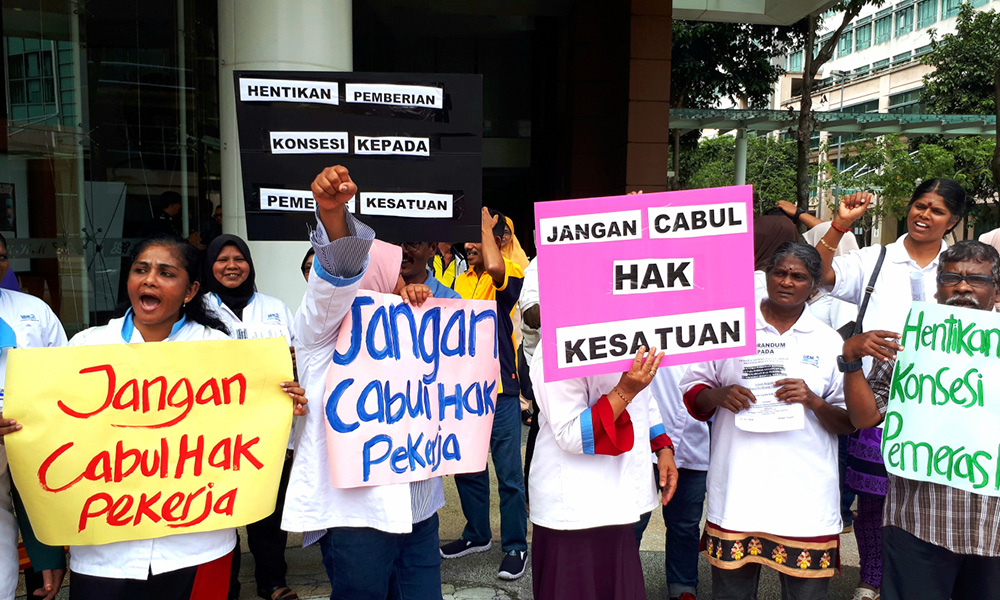
Rita, who was always fearless in “confronting” the bosses, was elected as union branch chairperson for her hospital.
More than half the cleaners join the union
The union, Kesatuan Pekerja-Pekerja Swasta Perkhidmatan Sokongan di Hospital-Hospital Kerajaan Semenanjung Malaysia (KPSPSHKSM) was actually formed in 1997 but was dormant until PSM reactivated it in 2016. Saras and her comrades went to 22 hospitals in northern Malaysia to explain the concept of the union to the cleaners, helping those in each hospital to establish their own union.
The government hospital where Rita worked had 47 cleaners. As of last December, 37 cleaners had joined the union. Rita and her colleagues had deep discussions about the plight of workers under the contract system.
“We always discuss our problems in the union. Most of us have the awareness. Why don’t we ask for our rights, ask to abolish the contract system?”
Indeed in the middle of last year, a documentary titled "Bila Kami Bersatu" filmed the daily struggles of a union of hospital cleaners.
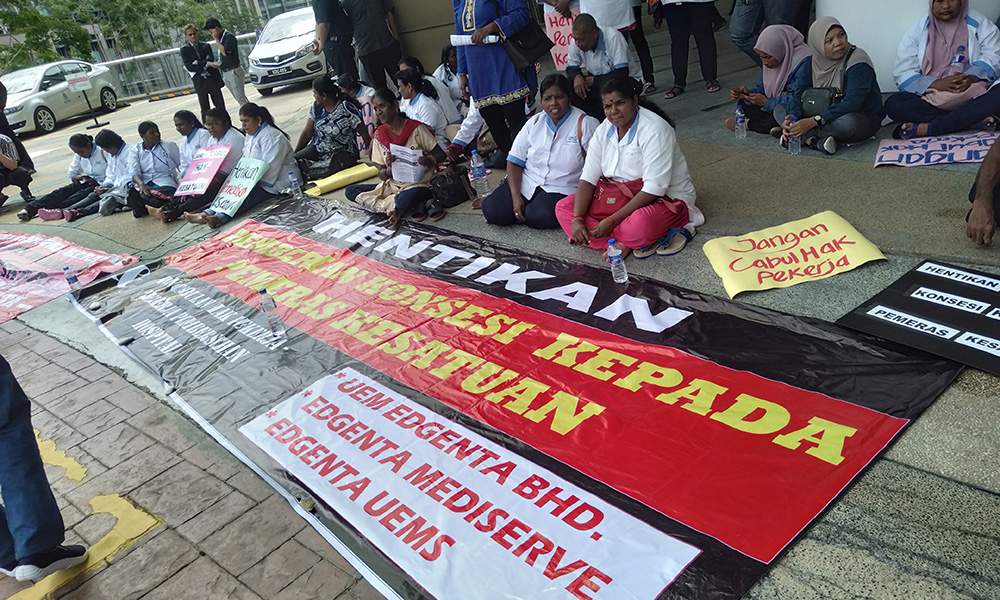
After years of meetings and preparation, the union began the lengthy negotiations with the then-contractor to secure workers' pay rises and basic benefits such as holidays and allowances and finally signed a collective agreement (CA) in October 2019.
Thirty-eight out of the 43 demands listed by the union had been accepted by the employer, except for those involving money such as bonuses and increments. It was a great moment for them.
However, the workers were then informed that they would come under a new subcontractor again, this year.
The new subcontractor, Edgenta UEMS, is in charge of cleaning services in 32 hospitals in northern Malaysia and is under a public-listed government-linked company (GLC), UEM Edgenta.
For the record, the UEM Group has been a fully-owned subsidiary of Khazanah Nasional Berhad since 2001.
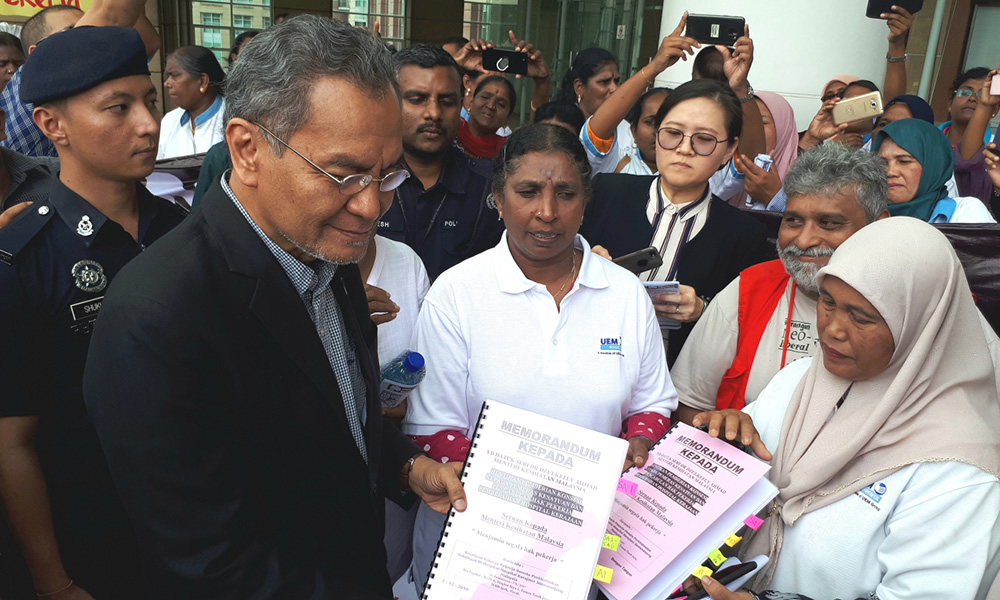
According to Rita, before formally taking over, the new subcontractor started asking cleaners to fill job application forms. In other words, the cleaners who have worked for years will be absorbed as "new workers".
Besides that, the employer said the "new workers" should attend an interview, and those selected will be under a three-months probationary period. Those who cannot read and write would be terminated.
The company refused to recognise the collective agreements that had been sighed with the previous contractors and said that the union would be automatically "disbanded" when the company takes over.
Tense times after protest
The union then mobilised over a hundred cleaners from several hospitals in northern Malaysia to stage a protest in front of the Health Ministry in Putrajaya. Rita was one among them.
They sat in front of the Health Ministry in Putrajaya, asking to see the then Health Minister Dr Dzulkefly Ahmad (above).
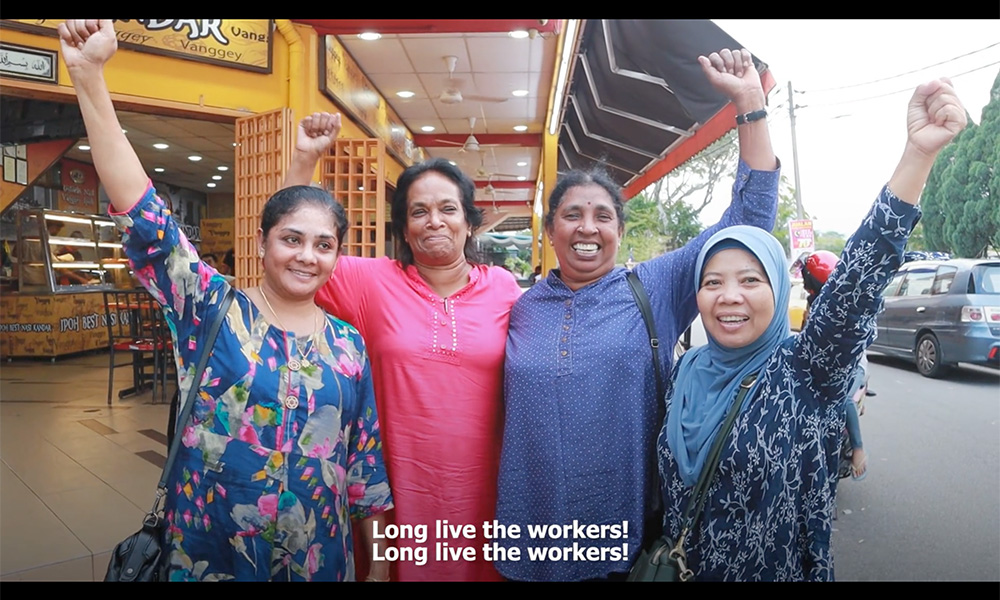
Speaking of the experience of demonstrating, Rita, who had always been brave and determined, said she didn’t feel nervous at all. “If I didn't do anything wrong, I will not be afraid.”
After several hours, Dzulkefly met them and received their memorandum and allowed the union representatives to meet with a ministry officer.
According to Rita, one of the high-profile leaders of the new subcontractor was also present and promised the cleaners that they would become permanent staff and the protesters would not be dismissed.
Eventually, the workers did not have to fill in job applications forms or undergo probation but they realised that their benefits were cut after receiving the offer letters.
Thus, many of them signed the offer letters with a note - “Received with objection' (Terima dengan bantahan)” to express their dissatisfaction.
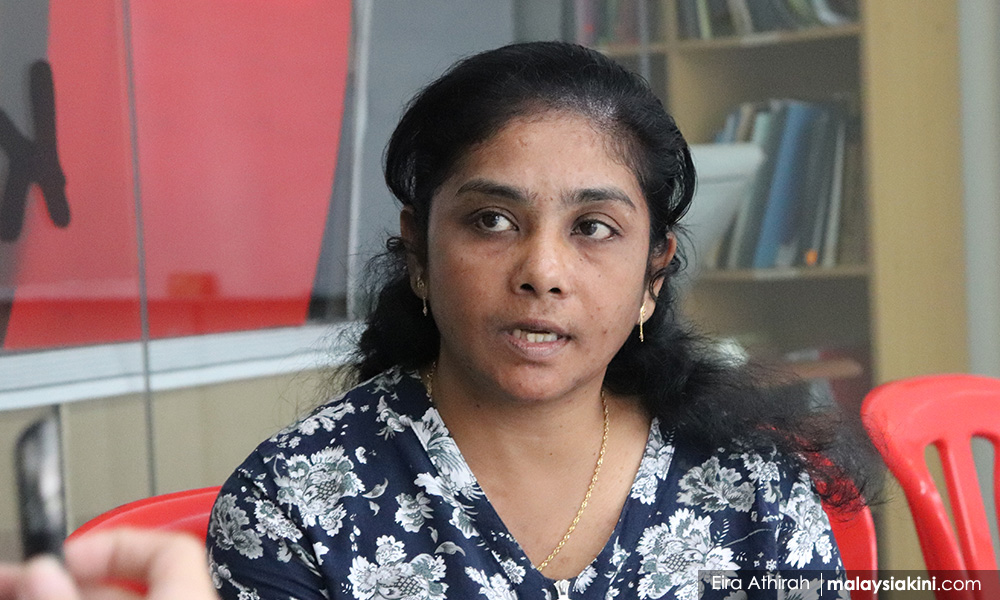
After that, representatives from the union, Edgenta UEMS and the Health Ministry, met several times to negotiate the matter.
Ultimately, the employer agreed to issue a new offer letter to those who signed under "Received with objection" while the union would issue a formal letter to explain the reasons for the objection.
However, Rita said she and five other workers didn’t receive the new offer letters. Four out of the six of them had participated in the demonstration in Putrajaya.
At the time of writing, Rita has been out of work for four months. With the Covid-19 outbreak, she lost her part-time job recently.
Although she believe that her termination was due to union-busting, she has never regretted her decision to be active in the union.
“Only when the union is strong enough, can we get what we deserve.”
Touchingly, the union members who have continued in their jobs are now donating so that their unemployed comrades can receive up to RM200 per month.
“If not for the union, I think no one would help us.”
Rita and the other workers have filed a police report as well as a complaint with the Industrial Relations Department on Jan 3, 2020, on the issue of unjust dismissal.
According to Rita, after the protest in Putrajaya, workers who played an active role in the union started to be targeted by the employer. Their working schedules and workplaces have been changed.
Sadly, some colleagues who are non-union members tipped off their supervisor when Rita and her colleagues talked about the union activities.
“My supervisors asked me what I would get by joining the union. I said I could get my rights, and he stopped asking me. But he will tell my colleagues not to be like me or they will lose their jobs. ”
Despite the bumps and turns, the formation of unions has shaken up the rigid structure of labour and loosened the unequal relationship between supervisors and workers.
Rita recalls that before the union was formed, the answer to any complaint would often be: "You can quit if you don’t like the job." Or, there would simply be no response.
“After the union was formed, our supervisors are more careful and act on our complaints. They will tell us not to complain to the union because the union will send a formal letter to fight for the rights of workers.”
UEM Edgenta says it is committed to job security
When responding to Rita’s claims, UEM Edgenta told Malaysiakini that there was no attempt to sideline or terminate the six workers and that the workers themselves refused to accept the employment offer without the note "Terima dengan bantahan".
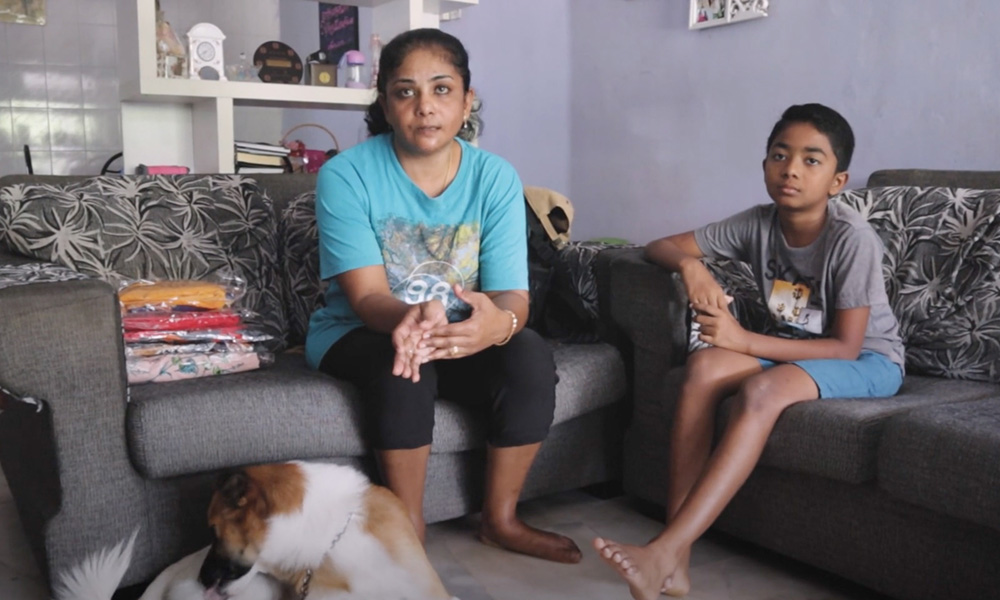
“Edgenta UEMS supervisors have engaged and persuaded them to reconsider a clean acceptance. However, the six individuals refused.”
“Hence the positions were offered to other applicants to ensure uninterrupted operations at the mentioned hospitals.”
According to the statement, UEM Edgenta had offered a permanent employment status for the workers, which brings them additional benefits and value.
“The aim is to provide the cleansing operatives with more job security and it would be easier for them to apply for banking facilities such as loans.”
“Over 2,200 individuals, the majority of them former employees of the subcontractors, had accepted the employment offer unconditionally, and were recruited as new Edgenta UEMS permanent employees.”
Furthermore, the company claimed that it was not legally bound by the collective agreement (CA) between the union and the previous subcontractor NS Medik Sdn Bhd as it is not the "transferee, assignee or successor" as stated in the CA.
“This was not a take-over or merger or an acquisition, nor was it a change in business ownership. Edgenta UEMS is a separate entity altogether and has no relationship with NS Medik Sdn. Bhd.”
While she struggles to defend workers’ rights, Rita never relaxes her fight for the livelihood of her entire family.
She expressed worries about her son who is going to take his SPM exam early next year.
“I should have sent him for tuition, but I'm unemployed and can't afford it."
One of her daughters is waiting for her STPM results and work part-time at a petrol station.
“She'll help with the household expenses, but I want her to save the money. She's going to college soon and I should prepare for it now, but since I don't have a job, I can’t do much."
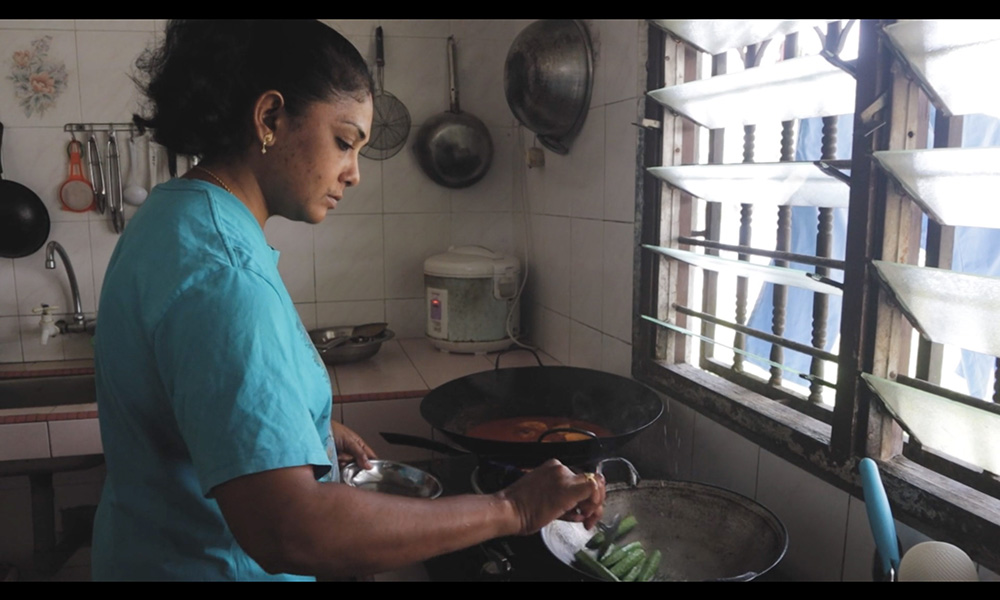
Asked if she has considered changing her job during this period, Rita revealed that she has continued running an online business to sell some clothes and groceries, which she started to do two years ago.
“Although the profit is not stable, it's still a way to get food for the family.”
As she has a keen interest in business, her mother also suggested that she could open up a stall to sell food.
“My mother could make the kuih-muih, it’s like our family recipe. But it also requires some capital to set up a business, so we are still considering it.”
Currently, Rita is still waiting to hear feedback from her complaint to the Industrial Relations Department.
“Of course, (if favourable) I would return to work at the hospital. Maybe I wouldn’t stay for a long time, because the income is not enough for me.”
“But for me, the fight should go on. I want to prove that we, the union can win.”



Hello viewer’s
ReplyDeleteI don’t have much to say there are so may scammers going on online so we cant detect the real herbal medicine doctors. Thank GOD for leading me, please don’t ignore this post is real Dr Emmanuel, is a real herbal Doctor, he cured me from Herpes virus, i am living so happy and free , i was fully recovered within 4 weeks of usage of dr Emmanuel herbal medicine ,please viewers out there that have any deadly disease don't fail to contact him via his email; nativehealthclinic@gmail.com or WhatsApp/Call: +2348140073965 thanks once again to dr Emmanuel GOD bless you abundantly
he also cured HIV/AIDS,CANCER,GENITAL WART,COPD,BRAIN TUMOR